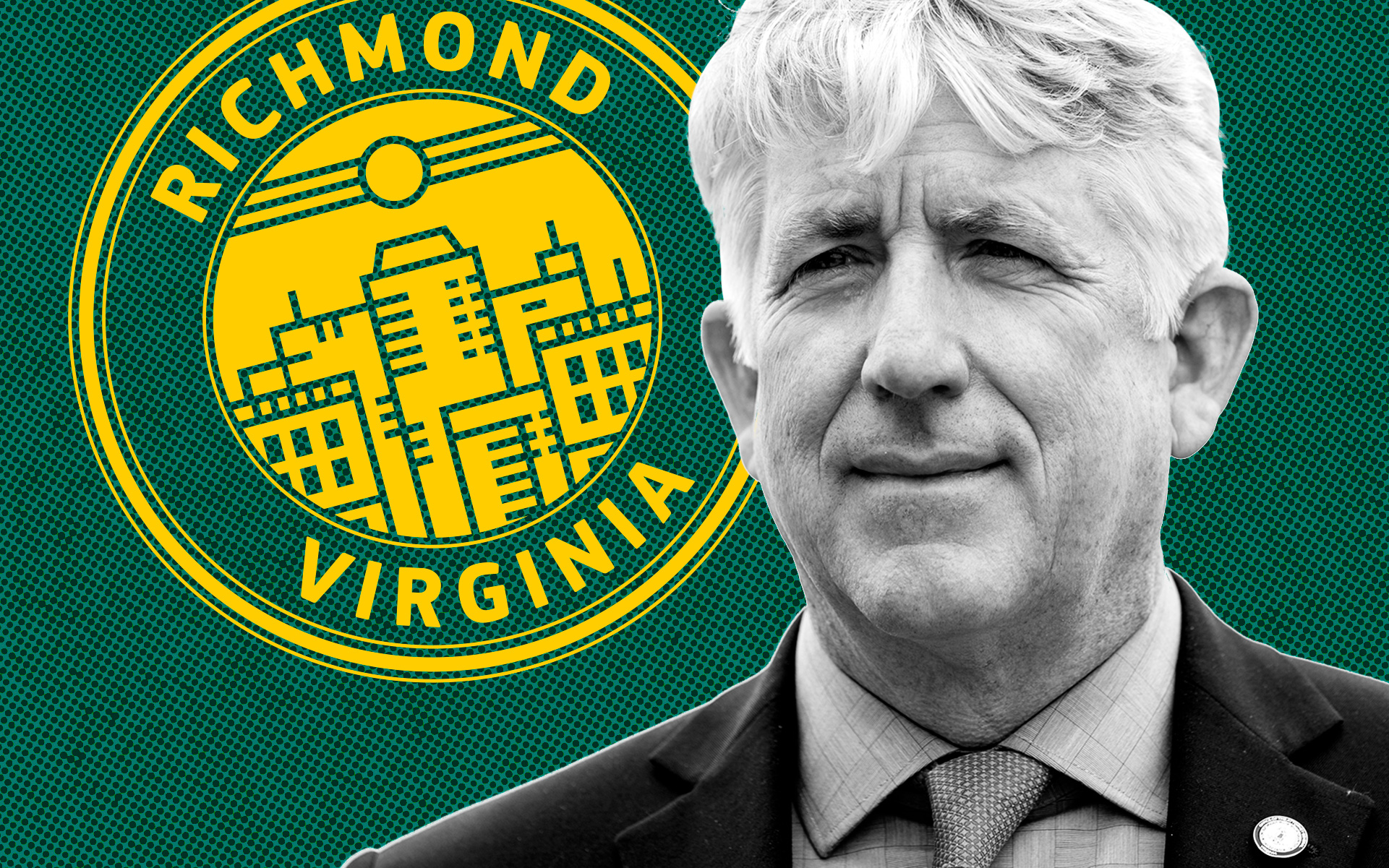
Virginia Attorney General Mark Herring has emerged as one of the leading voices for cannabis reform at the state level. He gathered Virginia state leaders in Richmond on Wednesday to discuss the state’s next steps on cannabis policy reform. (Andrew Harnik/AP, flavijus/iStock)
RICHMOND, VA—Virginia has long been one of the nation’s most conservative states on cannabis, having passed a very limited medical marijuana law in 2018. But with a new generation of state leaders taking over, Virginia could take action on badly needed cannabis reform in 2020.
The first step toward that makeover took place on Wednesday, at a daylong cannabis reform conference held in Richmond.
At the Virginia Cannabis Summit hosted by state Attorney General Mark Herring, lawmakers heard from state officials in Illinois and Colorado, legal experts, and law enforcement leadership, “to create a plan of action for badly needed reform of Virginia’s cannabis laws.”
Today we’re bringing together legislators, stakeholders, and policy experts to plot a course for a smarter, fairer, more just cannabis policy in VA. For me, that means decriminalizing now, resolving past convictions, & moving to legal, regulated adult use.https://t.co/aqWxQCVPIg
— Mark Herring (@MarkHerringVA) December 11, 2019
A call for baked-in equity
Members of the Virginia Assembly’s new Cannabis Caucus—created after Democrats took control of the House and Senate in last month’s state elections—questioned experts about equity in the cannabis industry, the rise of CBD, and racial disparities in the enforcement of marijuana laws. In 2018, almost 29,000 people were arrested for marijuana in Virginia—the state’s highest number in 20 years and three times the 1999 rate.
A majority of those charges were for simple possession, according to state police.
“I’ve seen so many young people’s future opportunities limited by an arrest for possession of a small amount of marijuana,” said Herring. “Those convictions stay with you your entire life. They limit your future employment opportunities, education opportunities…even custody issues.”
“This is a matter of extreme seriousness to us,” said Del. Steve Heretick. “Virginia wants to get this right.”
Equity and racial justice concerns were an important topic. African-Americans comprise 20% of the state’s population, but accounted for nearly half of all marijuana possession arrests, according to police data.
Lessons from Illinois
Ashley Wright, chief of legislative affairs for Illinois Attorney General Kwame Raoul, shared behind-the-scenes insights from Illinois’ legalization efforts. She said similar racial disparities in Chicago led to Illinois becoming the 11th state in the country to legalize marijuana earlier this year.
“In 2010, which was 2 years before Chicago decrim, over 33,000 arrests were made for marijuana possession, the highest in country,” said Wright. “Most were for 10 grams or less.”
“The war on drugs had a disproportionately negative effect on communities of color,” she added. “And if you’re going to go through legalizing marijuana, the conversation you have to have is, ‘How do you correct for that?’”
She described Illinois’ approach to cannabis social equity as a three-legged stool: automatic expungement for minor cannabis convictions, promoting social equity applicants for licensing in the retail industry, and reinvestment of marijuana tax revenue into communities most harmed by prohibition.
Hemp growers taking risks
Delegates also heard from experts about hemp and CBD.
“Commercial hemp in Virginia is very new. I think it’s our second or third crop,” said state Sen. Dave Marsden. Farmers in his district, Marsden said, were optimistic about the industry’s potential but concerned about regulations. By law, hemp crops that test for THC levels higher than 0.3%, known as “growing hot,” must be destroyed.
“We’ve gotten an earful” from the ag sector, Marsden said. “The risks of hemp farming in Virginia are enormous.”
A long way to go still
Despite a newfound optimism, Virginia has a ways to go when it comes to cannabis policy reform. In 2018, Gov. Ralph Northam expanded the Commonwealth’s medical cannabis oil program. But medical cannabis products with a THC concentration of over 5% remain prohibited.
“Here in Virginia there is a tendency towards caution within the legislature,” said Del. Lee Carter, a member of the Democratic Socialists of America who campaigned with Bernie Sanders earlier this year. Carter and Heretick introduced legislation to legalize marijuana in Virginia’s General Assembly back in January.
Carter urged lawmakers to push past that traditional go-slow approach. “If we move cautiously and take baby steps,” he said, “we’re going to allow ongoing harm to continue.”
Gov. Northam has advocated for decriminalization but stopped short of calling for legalization. When asked about policy differences between branches of state government, Herring stressed the importance of focusing on what could be controlled.
Northam’s cannabis policy is “up to the governor, of course,” Herring told Leafly. “What I’m trying to do is put Virginia on the right path…I hope, like with other people who are having an open mind, we’ll be able to bring folks along.”




